Nottinghamshire: Record number of dormice found in county
- Published
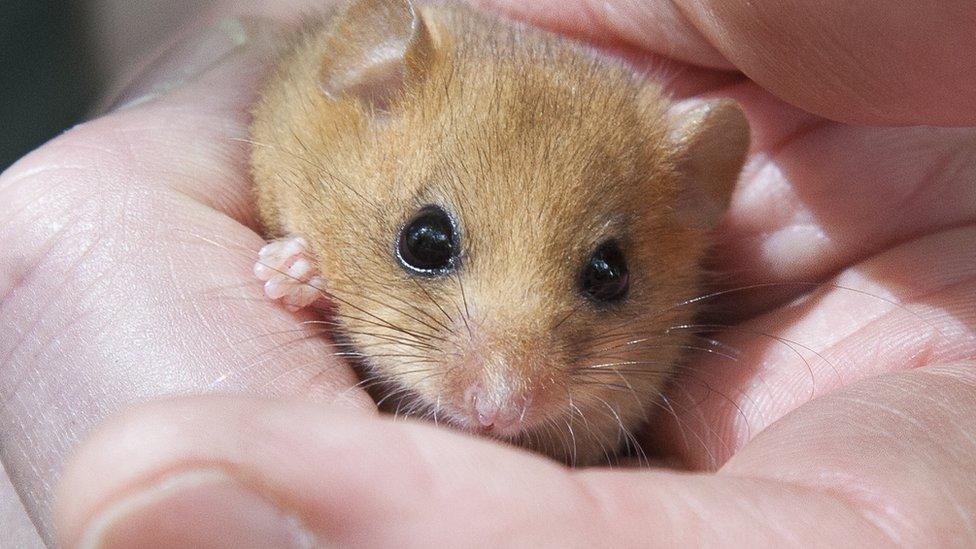
The wildlife trust said dormice were now "well-dispersed" throughout three Nottinghamshire woodlands
Record numbers of dormice have been found in Nottinghamshire this year, according to a wildlife trust.
A total of 69 individuals plus a litter of pinkies were recorded in September, topping last year's record of 43.
Nottinghamshire Wildlife Trust said the rise was due to a combination of a bumper year for food and restored woodland habitats.
The small "critically endangered" mammals were reintroduced to the county in 2013.
The wildlife trust said a nest-box check last month - carried out by the Nottinghamshire Dormouse Group - found dormice of all ages inside.
There potentially could be more pinkies as litters are not removed from the natal nest until they are older, the trust said.
The trust said: "This year marks the 10-year anniversary of the reintroduction at a Nottinghamshire Wildlife Trust nature reserve, so it is very encouraging that the population is doing so well after such a relatively short length of time."
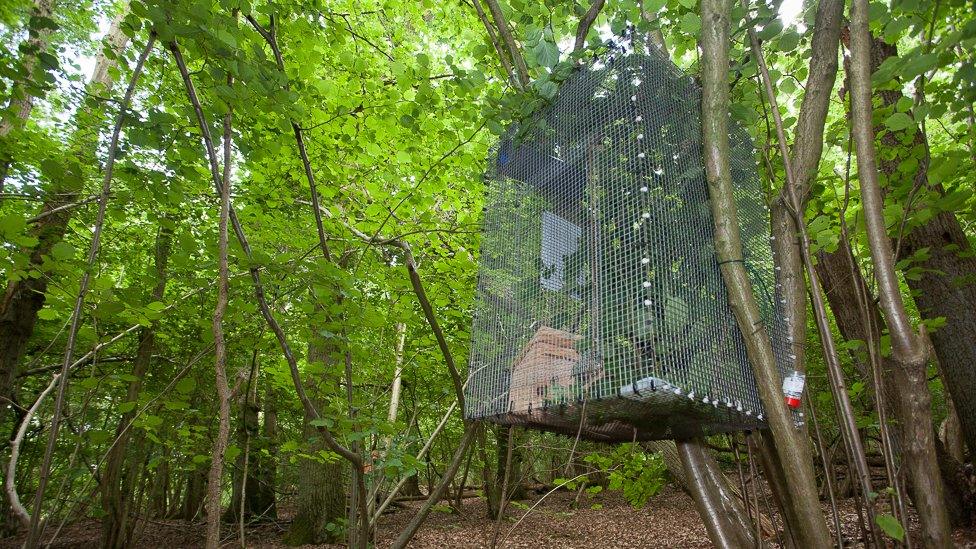
In 2019, dormice spent 10 days in cages before they were released and given freedom to roam the Nottinghamshire woodland
The creatures live mainly in hedgerows and woods and hibernate on or near the ground in winter between October and May.
In 2016, a report, external found the creature had become extinct in 17 English counties.
To boost numbers in Nottinghamshire, almost a dozen of rare hazel dormice were released into a secret area of woodland in 2019.
The reintroductions are part of a Species Recovery Programme supported by Natural England, which has run for more than 25 years.
It has seen almost 1,000 hazel dormice released back into 12 English counties.

Follow BBC East Midlands on Facebook, external, Twitter, external, or Instagram, external. Send your story ideas to eastmidsnews@bbc.co.uk, external.
- Published23 June 2019

- Published27 July 2017
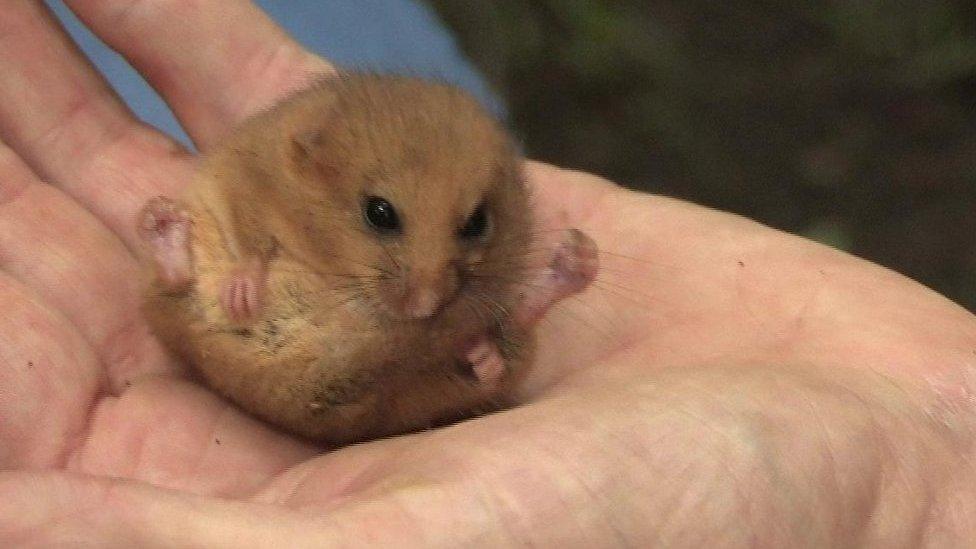
- Published9 September 2016
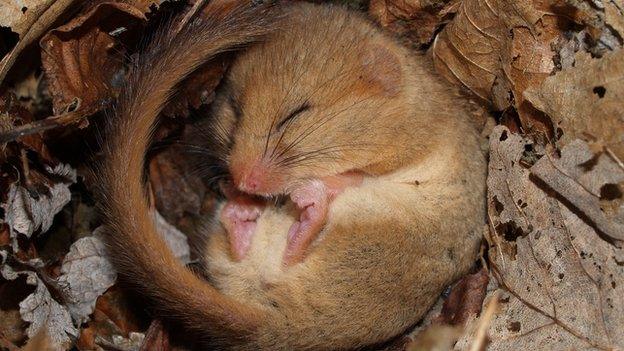
- Published26 December 2014
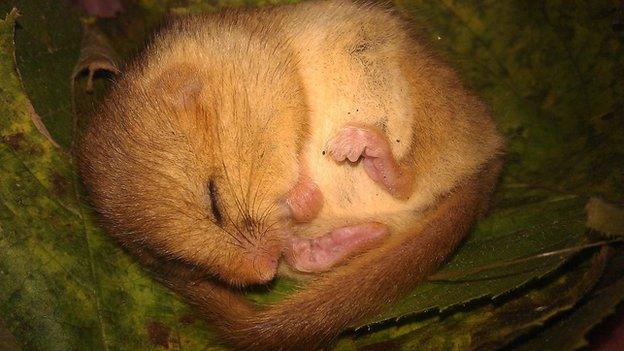
- Published10 June 2014
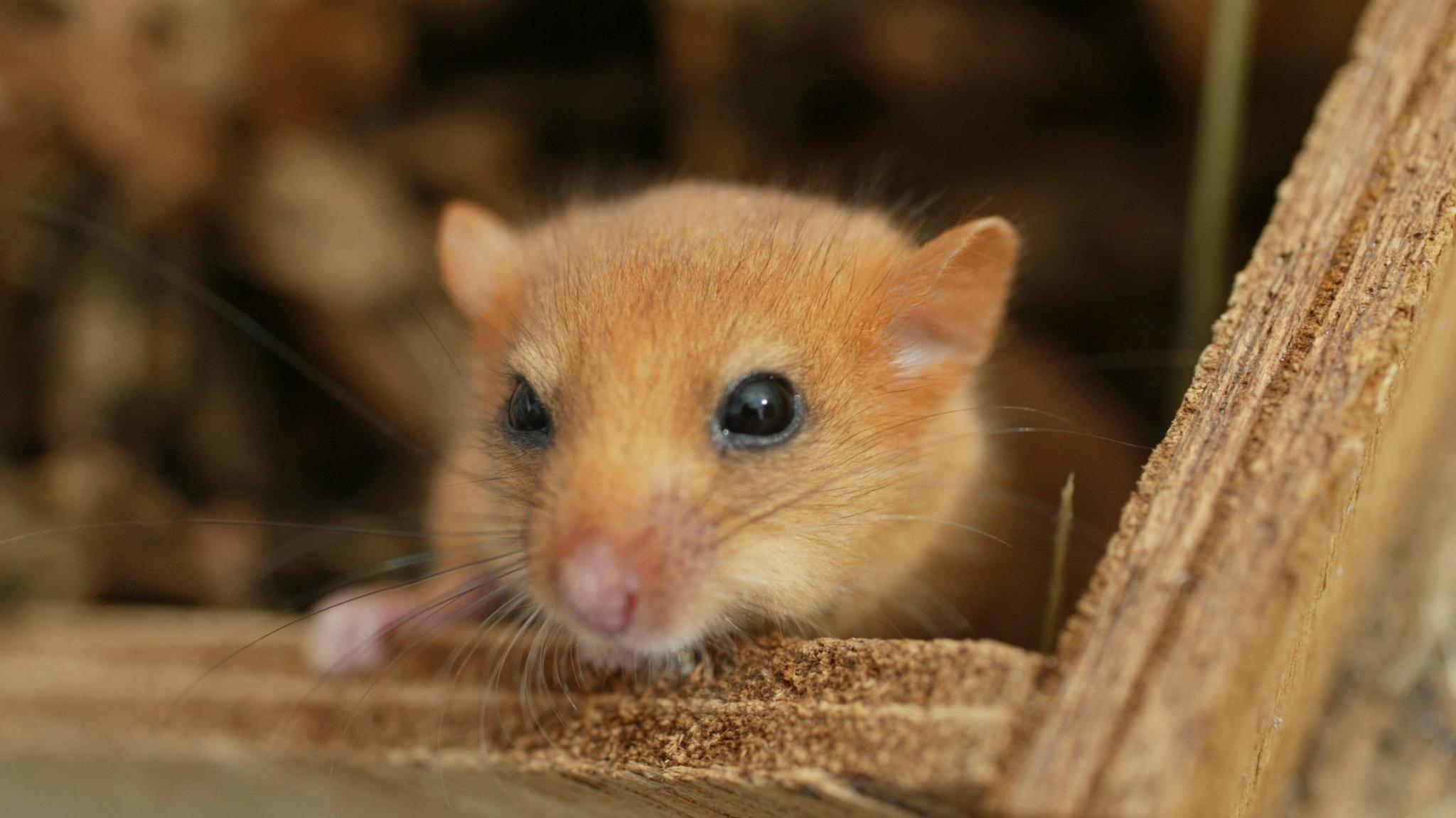
- Published21 June 2013
